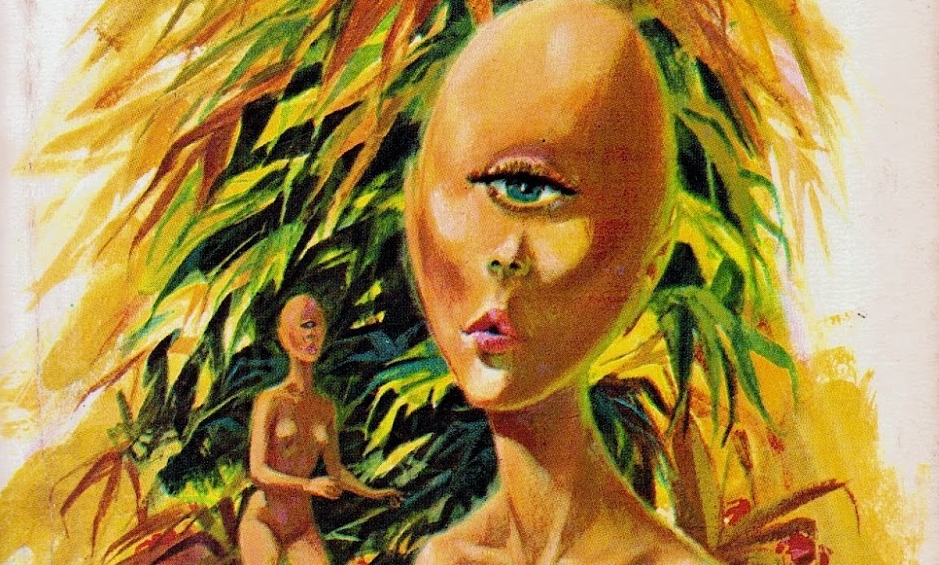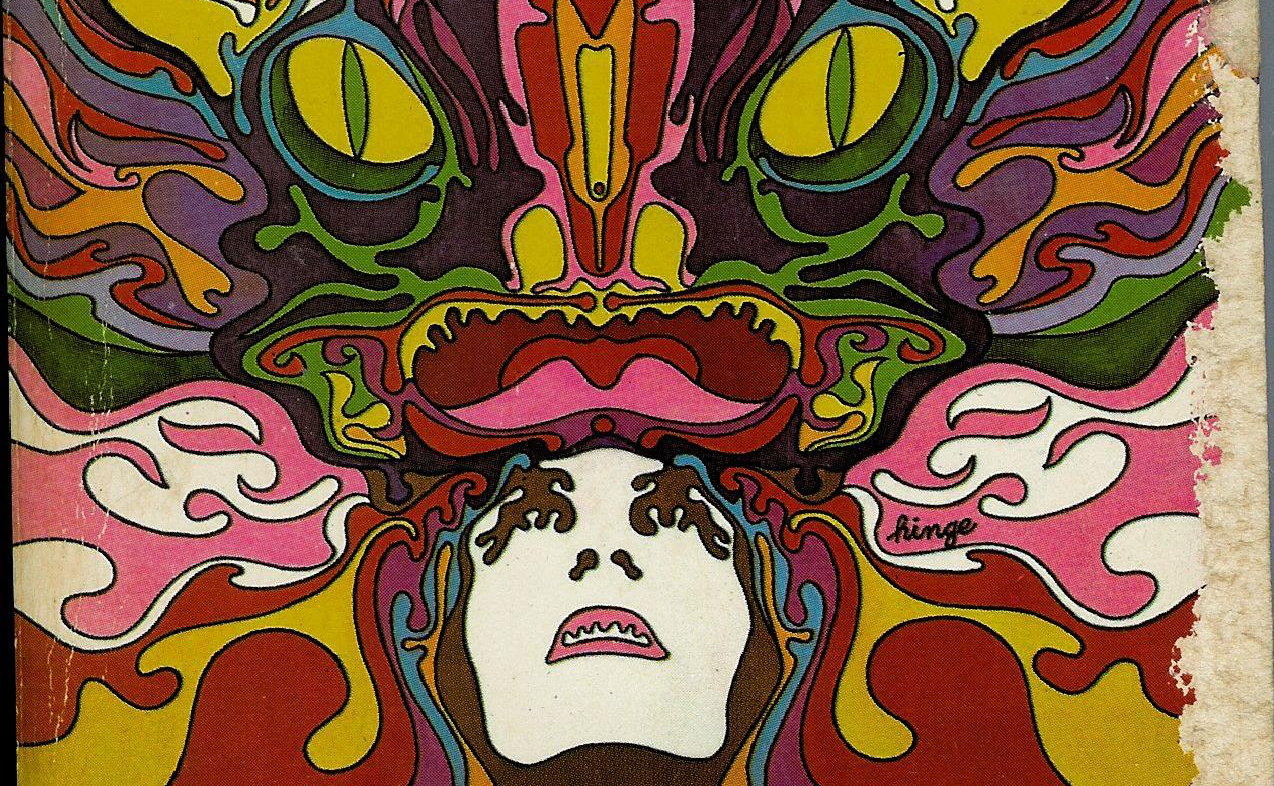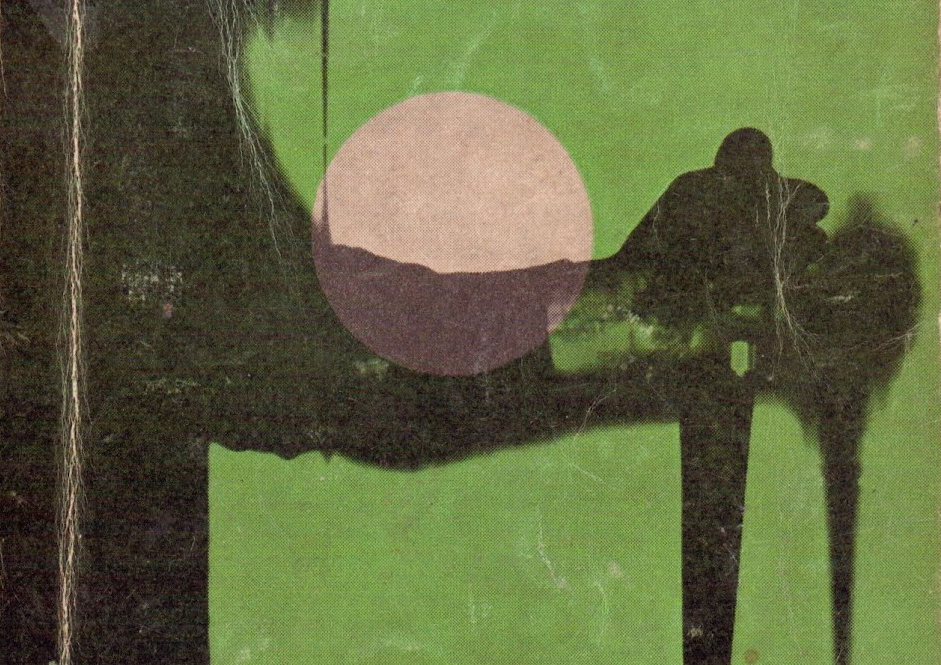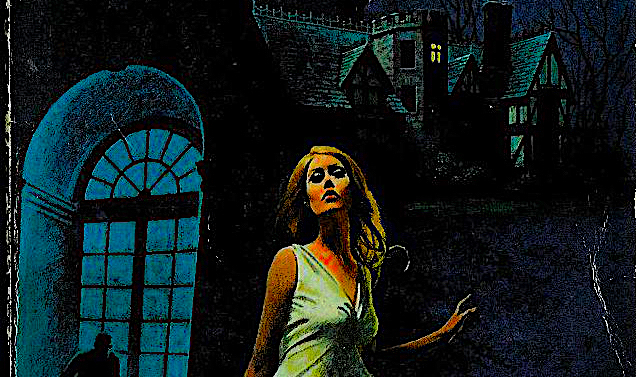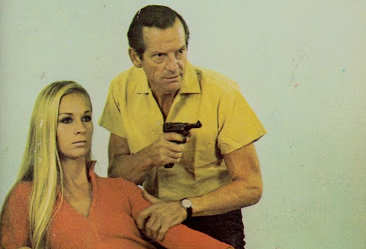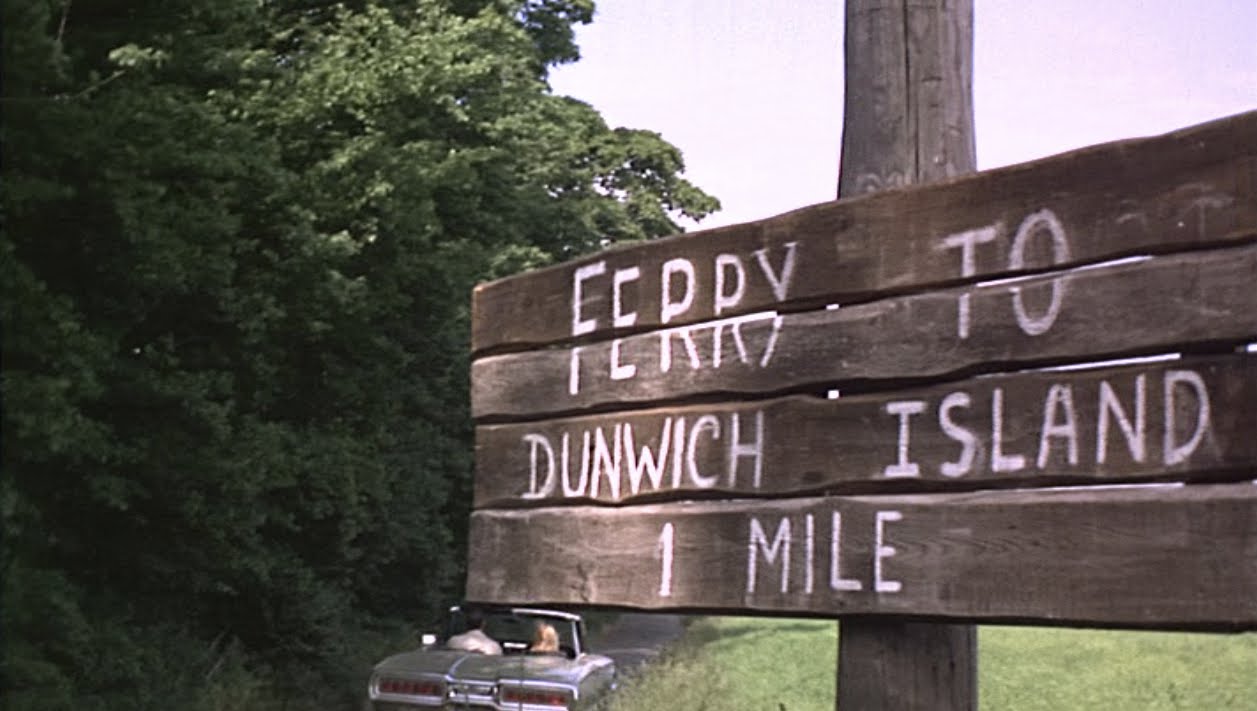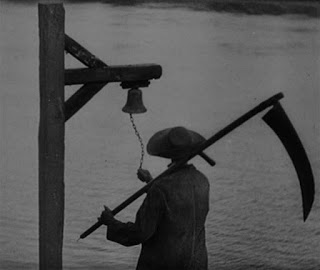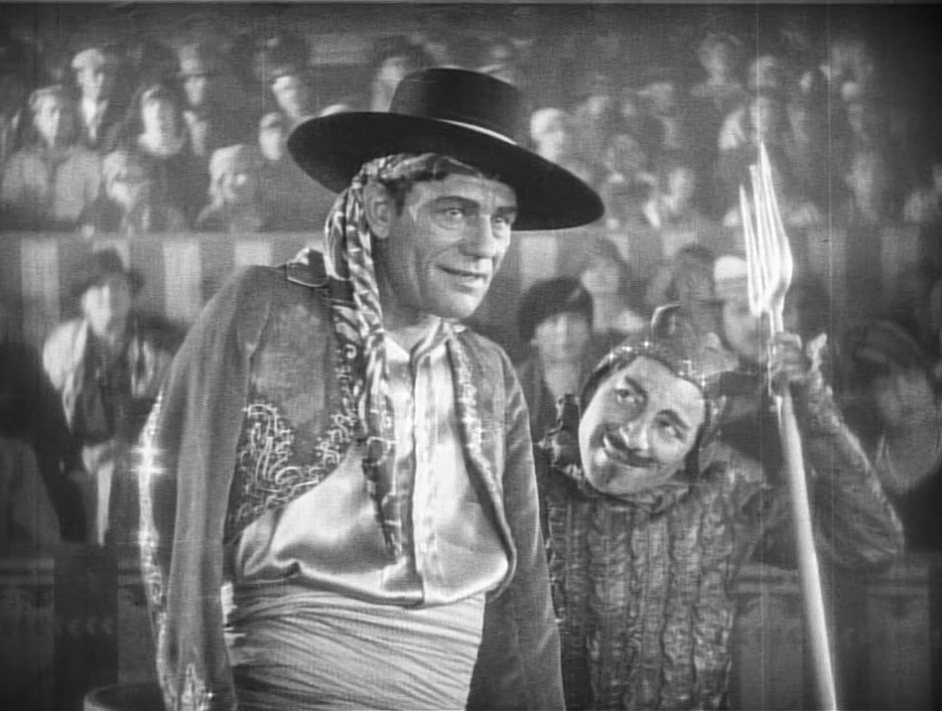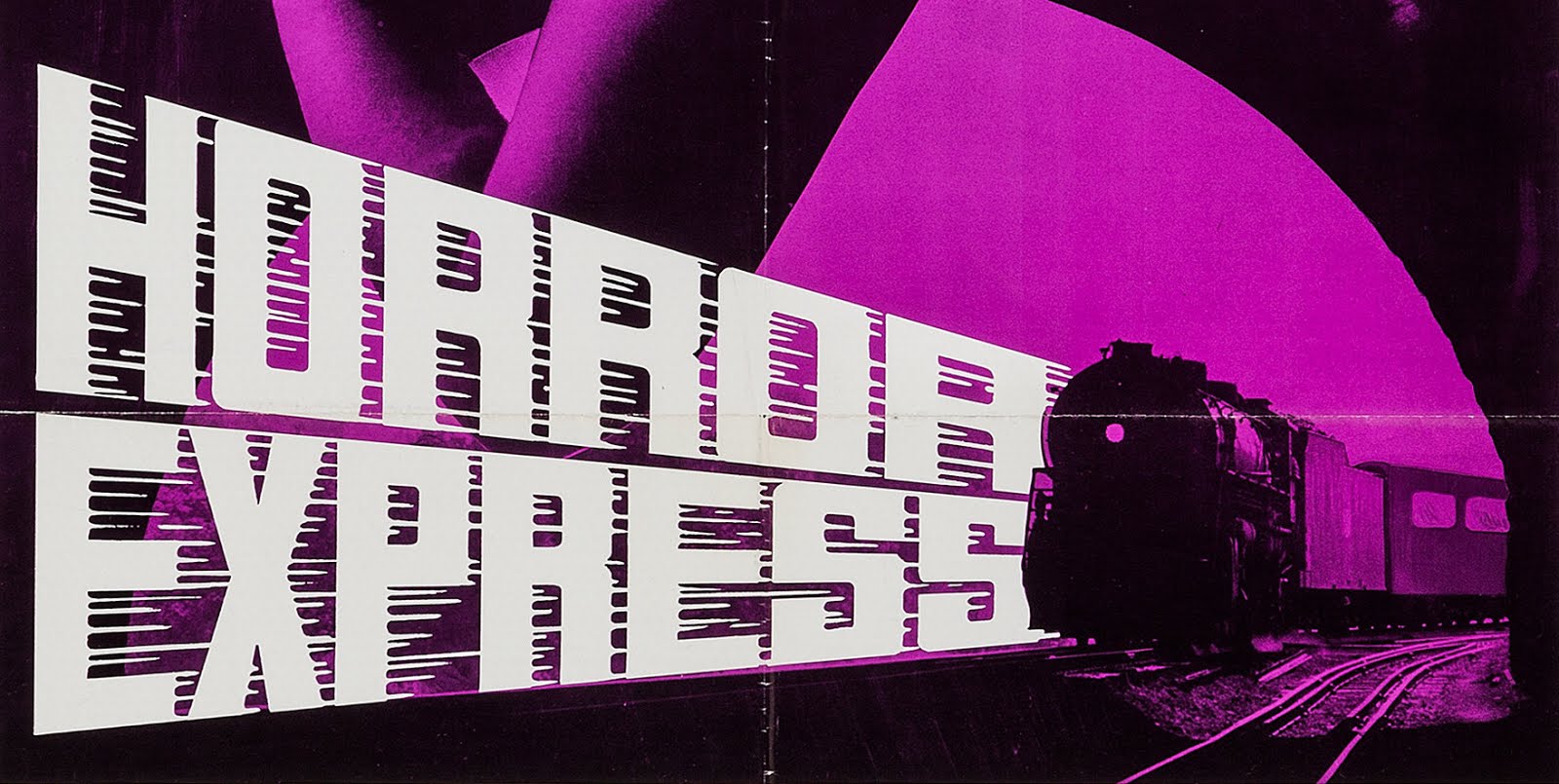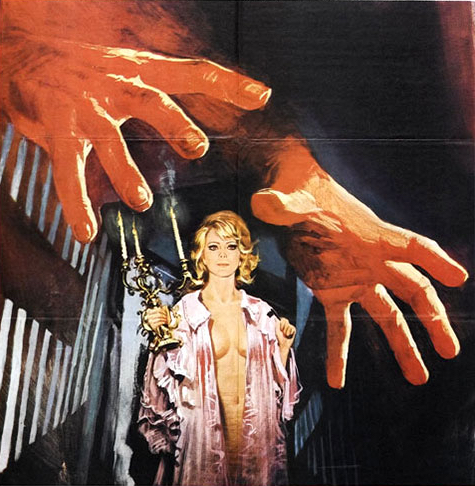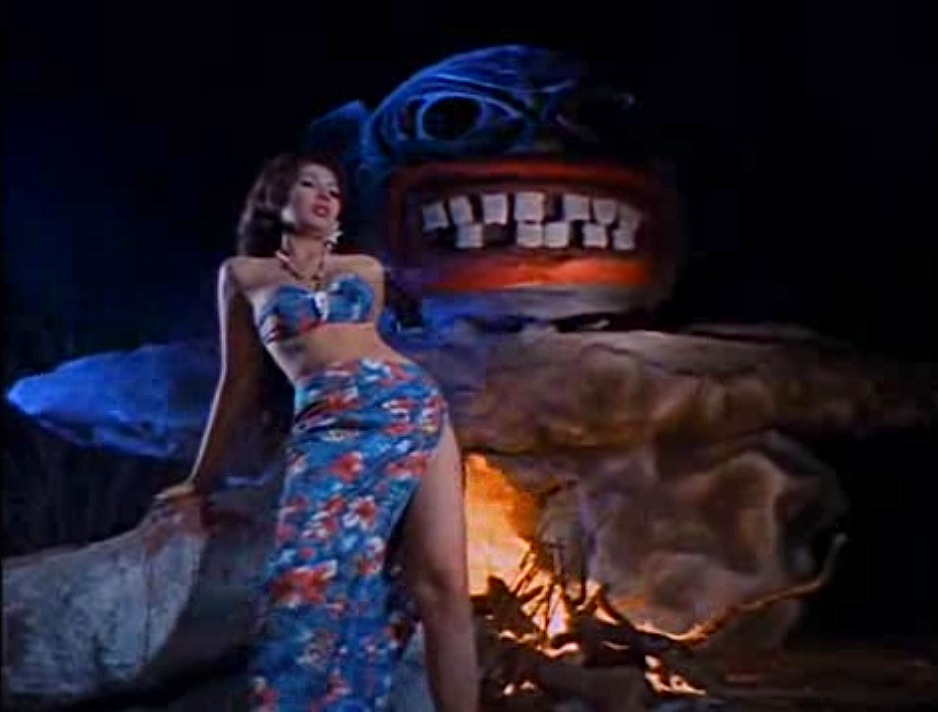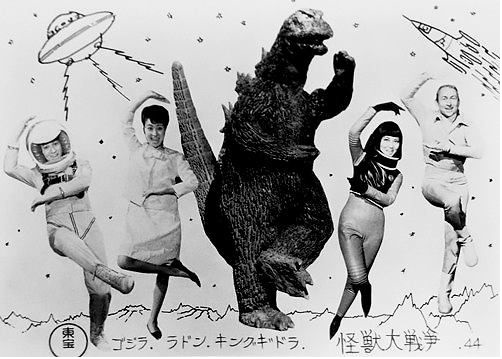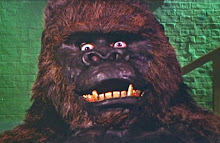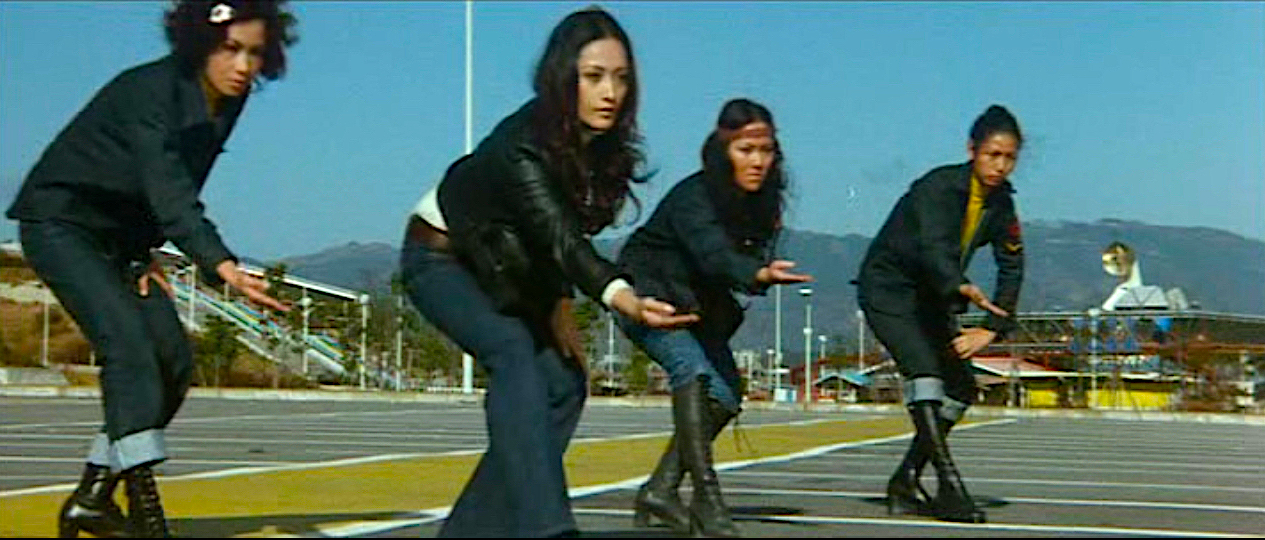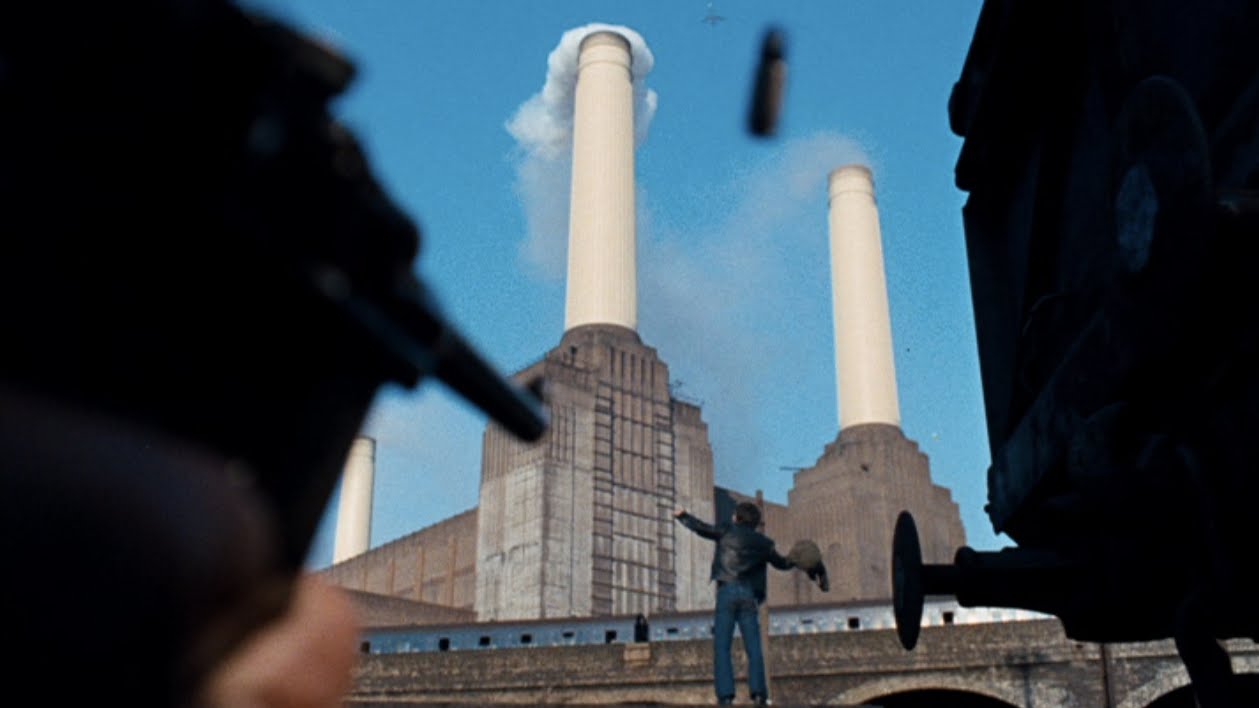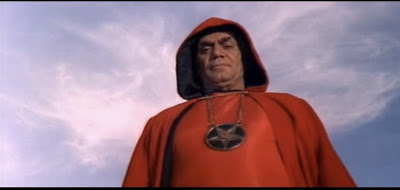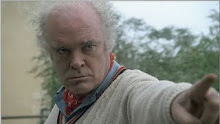
Having already reviewed a few of Jean Rollin’s more marginal and uncharacteristic films this year, I thought it was only fair that I should make time to cover at least one of his bone fide masterpieces before moving on to a few more oddities… not that Rollin’s masterpieces aren’t complete oddities by anyone else’s standards, but y’know what I mean. So where better to start than with perhaps the purest and most concise distillation of his particular approach to cinema ever realised – 1973’s ‘La Rose de Fer’.
Perhaps the most ambitious and personal work to emerge from Rollin’s creative peak in the early/mid ‘70s, ‘La Rose..’ also marks one of his only attempts to make a film outside of the constraints of the horror/exploitation industry. Entirely lacking in any of the usual genre signifiers whilst still staying true to the director’s established visual language, ‘La Rose..’ sees Rollin plunging headfirst into the kind of freely associative, imagery/poetry driven art film that his horror work had always hinted at - a move that sadly proved so commercially disastrous that he didn’t dare attempt another fully loaded avant/abstract film until 1989’s self-financed ‘Lost In New York’.


The set-up for ‘La Rose..’ is pretty minimal: a girl (Francoise Pascal) catches the eye of a boy (Hugues Quester) when he stands up to recite a poem at a boring wedding reception. Making each other’s acquaintance outside the event, they agree to go for a bicycle ride together next Sunday. Thus they meet amid abandoned locomotives at the fog-shrouded ‘old station’, and proceed to get cycling. They are full of beans and enjoying themselves, and everything is going swell. In fact it all seems far too affectionate for a first date, but hey - they’re French, I’m British, what the fuck do I know. Controversially, the boy suggests they enjoy their picnic amid the picturesque surroundings of a large, dilapidated cemetery they happen to be passing, and the girl, though initially reluctant, agrees. They decide to explore the cemetery, and spend so long mucking about that they fail to notice that it’s getting dark, and the caretaker has locked the gates for the night. Condemned to spend the night alone amid the graves, they go through some changes.
And that’s about it really.
Not much to work with perhaps, but ironically ‘La Rose..’ actually sees Rollin pushing his preferred themes of sex and death more relentlessly than in any of his sex or horror films, as the emblematic plotline quickly gives way to what is essentially an extended visual poem, exploring … uh, well… y’know - the fresh air and energy of young love contrasted with the constant erotic pull of the tomb, the shivery fascination of funereal imagery, life and sex and death and all that heavy shit.


As you can perhaps appreciate, ‘La Rose de Fer’ is an extremely difficult film to write about. It is capable of provoking a powerful reaction in receptive viewers, but that reaction can be a very fleeting and complicated one, almost impossible to describe or quantify without drifting inescapably into the realm of witless purple prose.
So, let’s try a different approach. ‘La Rose..’ is an unusually personal film, and as such, it seems only fair to respond with an unusually personal review.
Going back a few years, to when I was (cough) a younger man than the one you see before you today, for a short while I was really into those Richard Linklater movies, ‘Before Sunrise’ and ‘Before Sunset’. Y’know, the ones with Ethan Hawke and Julie Delpy traipsing around picturesque European cities exchanging a load of quasi-meaningful blather and so on. Nowadays, I’d probably be inclined to dismiss them in a heartbeat as a bunch of sanctimonious, masturbatory, half-assed indie-schmindie lamo wish fulfilment bullshit and get on with my life. Because, y’know, I’ve got better shit now, and more important, not at all lame or masturbatory things to do. Like watching ‘A Virgin Among the Living Dead’ again. But back then, when I was a bit dumber, a bit more earnest, a bit less cynical and judgemental, they… uh, well, like, y’know – they meant something, man.
If questioned at the time, I’d probably have come out with some claptrap about how these films presented the pure connection between two human souls, the act of falling in love as it should be, unfettered by ego or social constraints and yadda yadda yadda. But what I’d really have meant was: WOW, how much would I love to stride elegantly around some romantic old world city, exchanging deep n’ meaningful platitudes with some beautiful, intellectual French chick? That would be the BEST. And frankly, I’d be tempted to suggest that anyone who claims their enjoyment of those movies stems from anything other than similar base-level wish fulfilment is probably lying.
But the point I’m trying to make is: at one point in my life, those flicks seemed unique, and spine-tingling, and such. Then stuff happened, and I changed, and they don’t anymore. Now I watch ‘La Rose de Fer’ instead. Thanks Jean!


Similar logic of course applies though. It would be foolish to try to claim otherwise. How can I try to quantify the appeal of ‘La Rose de Fer’? Well…
Item # 1: if it is possible to say as much without immediately sounding like some teenage goth, I really like cemeteries. I liked them when I was a kid, visiting deceased relatives I was too young to even remember. Carrying the flowers and helping clean off the headstones, and running around picking up shiny stones from the paths between the graves, wondering whether they had some special power or something, but being very careful not to tread ON the graves, because that was bad luck, and just seemed, y’know… an inherently wrong thing to go around doing.
I still liked cemeteries many years later when I was moping around watching those Richard Linklater movies, and I still like them now. Whenever I’ve got some spare time and fancy a bit of a walk, I’ll often head out to one of London’s beautifully decrepit garden cemeteries. I like looking at them, I like being in them. I like the atmosphere, and I like the quietude. I like the sense of the past, the feeling of reverence. I like the strange architecture of the graves, and the overbearing imagery and… I don’t have to go on do I? You get the fucking point. I just really like graveyards alright, get off my case.
So when I watch ‘La Rose de Fer’, with Jean-Jacque Renon’s rich night-time photography (the way the couple’s red and yellow shirts stand out amid the dark green and brown hues of the graveyard is just lovely), and Pierre Raph’s almost subliminally low-key score (simple a cappella vocal melodies and ecstatic choral drones), I would be perfectly happily just watching a plotless documentary about the cemetery in Amiens for ninety minutes really.


I would say that the fact there’s a story of some kind going on often just seems like some added bonus, but that’s not really fair. In fact, one of the weird ironies of ‘La Rose..’ is that, for all that Rollin films tend to be labelled as nonsensical or surreal, the almost total lack of a story here actually inspires him to construct quite a gripping narrative from the elements at hand. The film’s thematic consistency creates a strong sense of internal logic, and the screen is full of action and movement at all times, the soundtrack given over to near continuous dialogue, helping the couple’s journey toward their strange fate avoid the kind of exquisite boredom one might have reasonably expected of a film like this. There are even some pretty funny bits, if you can believe that.
Anyway, Item # 2: I also like going camping in remote places and walking around after dark, breathing in the night air, and stuff. Yeah, that’s the best. And as for Item # 3, it should be noted that I’m still far from adverse to the company of dreamy, poetically-inclined young French girls.
So basically, when about halfway through the film the boy starts getting all angry and agitated and kicks up a fuss, I just feel like shouting, ferchrisake, what are you doing man? This is about the best way to spend an evening that could possibly be imagined! Give in and enjoy yourself, you idiot! You’re the guy I’m supposed to be identifying with here as I take vicarious pleasure in this exquisitely lyrical situation your character has got himself into – stop screwing it up!


If most of the action in the film is, as it seems, at least semi-improvised, then perhaps Hugues Quester’s irritating refusal to get with the programme is fitting. None of the backstage stuff I’ve read about 'La Rose..' has anything very kind to say about the actor. Pascal says she hated acting opposite him (see Jeremy Richey’s interview here), whilst Tombs & Cathal note in ‘Immoral Tales’ that “..Rollin also had a lot of trouble with the male lead” (p.152). Some kind of disagreement led to Quester insisting his name be removed from the posters, and he is credited as ‘Pierre Dupont’.
But no matter, Quester’s apparent belligerence never becomes a major problem, as Pascal holds the fort with an incredible performance, variously ignoring or tormenting her wouldbe lover as the film progresses, as her character finds herself moving inexorably from the reluctant innocent who initially wants to leave the cemetery into a wild and ecstatic participant in the world of the dead that surrounds her, as, in some sort of atavistic revelation, a concept of a wholly different relationship between life and death seems to explode in her mind fully formed, an absurdly romantic, anti-materialistic celebration of the mystery that lies beyond that strange horizon…
Sheesh, what was that I said about purple prose..?


The majority of the world’s populace would be forgiven for considering ‘La Rose..’ an insufferably pretentious, confounding exercise in god knows what. Sure, fine, whatever. It goes without saying that I love every second of it.
The film’s standout sequence comes when Pascal’s character experiences a vision of herself, naked in the surf on – where else? - the beach at Dieppe, the instant transition from funereal darkness to bright (ok, actually it looks a bit overcast) daylight creating a striking visual reflection of the girl's instinctive and weirdly compelling 'death = life' revelations. Wielding the wrought-iron funeral cross of Gallic tradition as the waves crash against her, she recites the Tristan Corbière poem that helped inspire the film. It’s really breathtaking. It is the heart of all of Jean Rollin’s body of work, the perfect distillation of his vision, from which all of the symbols and ideas that compose his cinema flow. It is near insanely beautiful, enough to stop the breath in your throat, to make you want to sign of the dotted line and join the girl in death’s loving embrace.



As you might imagine, people in 1973 didn’t quite see it that way.
To quote ‘Immoral Tales’ again;
“Rollin decided to present the film in person at the 2nd Convention of Cinema Fantastique that April in Paris. […] Patiently, he explained to them the genesis of the film and how he had tried to do something different, which he hoped they would receive in the right spirit.
The film had hardly begun before the walk-outs commenced. Pretty soon it was obvious that he had a disaster on his hands […] Cinematographe recounted how both he and his film had been roundly booed by the audience, in a way that the writer had never seen a director booed before. So much so, in fact, that for the next few days whenever Rolin was spotted he was given a wide berth and the comments and catcalls repeated. Ecran Fantastique […] in particular noted how the dialogue had given much cause for general hilarity.
Rollin was devastated. The film was now unlikely to find a distributor willing to take a chance on it. All the money he had made on his earlier films was invested in ‘Le Rose De Fer’. Now he had probably lost that too. Eventually the film was picked up by an arthouse distributor, but failed to find an audience amongst the devotees of the ‘cinema d’auteurs’, while its status as a film permissible to anyone over 13 made it anathema to the horror crowd.”
Those goddamn small-minded snobs. Fuck ‘em. They wouldn’t know great art is it punched them in the face. Henry Miller and Anais Nin and Baudelaire would have fucking LOVED this movie. For the moment, I love it too.
Maybe I’ll look back in a few years and cringe. Maybe I won’t. But for the moment, I can throw this in the DVD player and go exactly where I want to be. That is all.








